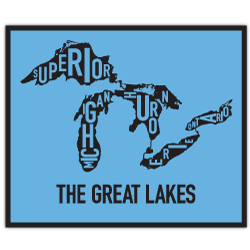
For our 2024 rankings, the research team at Nursing Schools Almanac collected data on nearly 3,000 nursing schools and campuses throughout the United States. We included the following states within our Great Lakes rankings: Illinois, Indiana, Michigan, Ohio, and Wisconsin. We evaluated each nursing school in the region on three dimensions:
- The institution’s academic prestige and perceived value
- The breadth and depth of nursing programs offered
- Student success, particularly on the NCLEX licensure examination
We then combined these assessments into an overall score and ranked the schools accordingly. For a detailed description of our assessment methodology and dimension weights, please see here.
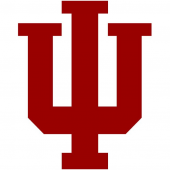
#1: Indiana University School of Nursing
Indiana University School of Nursing (IUSON) was the first college in the history of the NLN to hold two simultaneous designations as a Center of Excellence. The school also receives over $2.5 million annually in NIH funding for its nursing research. Almost 40% of Indiana’s baccalaureate-prepared professional nurses graduate from IUSON, with consistently strong NCLEX pass rates of 87-94% each year. Students benefit from IUSON’s active partnerships with more than sixty healthcare providers in Indiana, including five well-known facilities directly on campus. Study abroad courses and bi-national exchanges are also encouraged.
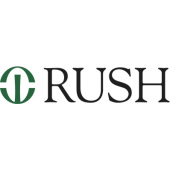
#2: Rush University
Since its inception, well over 7,000 baccalaureate, master’s, and doctoral students have graduated from Rush University’s College of Nursing. The college currently maintains a graduate enrollment of approximately 1,000 students, of whom 350 are studying fulltime. Rush’s direct entry MSN students have passed the NCLEX exam at an exemplary rate of 97% over the past decade. The Rush University Medical Center provides a rich environment where students of nursing, medicine, and allied health sciences learn in an interdisciplinary and dynamic setting.
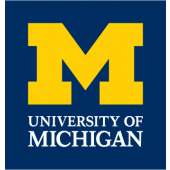
#3: University of Michigan
The University of Michigan School of Nursing (UMSN) offers the #8 MSN program and the #14 DNP program in the country according to U.S. News & World Report. The school’s nursing administration, adult-gerontology nurse practitioner, family nurse practitioner, and nursing informatics specialties are all ranked in the top ten nationally. At the undergraduate level, BSN students have achieved strong NCLEX pass rates, as high as 97% in some recent quarters. In addition to a wide range of nursing courses, the school provides innovative opportunities like its Global Health Concentration. Students benefit from state-of-the-art clinical simulation labs and partnerships with some of the best preceptors in the country.
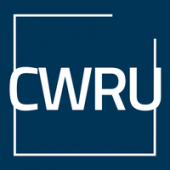
#4: Case Western Reserve University
The Frances Payne Bolton School of Nursing at Case Western Reserve University prides itself on innovation. The school was among the first in the country to offer several nursing programs, including acute care nurse practitioner, gerontological nursing, and doctor of nursing practice. It is also one of few private research universities to offer both a traditional four-year BSN degree and a direct-entry MSN pathway. BSN graduates have earned as high as a 97% pass rate in recent years. Case Western students benefit from their proximity to University Circle, a 550-acre scientific hub with numerous premier healthcare organizations. The school also has seven centers of excellence for nursing opportunities and experiences.

#5: Ohio State University
Twice designated a Center of Excellence by the National League for Nursing, Ohio State’s College of Nursing has educated over 12,000 nurses since its inception. The college places a strong emphasis on research and patient-centered practice across its various program offerings. Ohio State’s online MSN program consistently ranks among the best in the country by U.S. News & World Report. Numerous other programs have garnered top-ten rankings as well, including the DNP degree and several of its subspecialties. The school graduates 200-230 students annually from its four-year BSN program, with an excellent first-time NCLEX pass rate of 94% over the past decade.
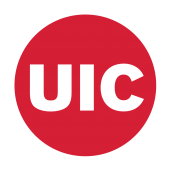
#6: University of Illinois Chicago
Educating a diverse student body of more than 1,300 individuals, UIC College of Nursing is consistently among the top ten nursing schools nationwide by National Institutes of Health research funding. The college also has three specialty programs that are frequently ranked in the top tier by U.S. News & World Report: family nurse practitioner, adult-gerontology nurse practitioner, and nursing administration. UIC offers nursing degree programs at its flagship campus in Chicago as well as regional sites in Peoria, Quad Cities, Rockford, Springfield, and Urbana. Nursing students have access to seven health science colleges at the university, enabling enhanced interprofessional classroom and clinical opportunities.
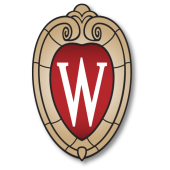
#7: University of Wisconsin - Madison
Established in 1924, the UW Madison School of Nursing enrolls more than 1,000 students across its undergraduate and graduate nursing programs. The school graduates approximately 150 prelicensure BSN students annually, who have averaged a stellar NCLEX pass rate of 98% over the past three years. Graduate students can pursue either type of doctoral degree (DNP, PhD) as well as four certificate programs (clinical nurse specialist, nurse educator, psychiatric mental health, school nursing). The school’s new Signe Skott Cooper Hall has state-of-the-art simulation labs and research facilities. Adjacent is the Health Sciences Learning Center that brings students together across the disciplines of nursing, medicine, and pharmacy. Nursing students also have access to leading facilities in Madison for their clinical practice and research.
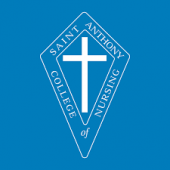
#8: Saint Anthony College of Nursing
Saint Anthony College of Nursing is a private Catholic college with a variety of regionally acclaimed nursing programs. Undergraduates can pursue a traditional BSN or RN-to-BSN pathway. Graduate nursing students have four MSN tracks (CNL, CNS, FNP, nurse educator) and four DNP specializations (CNS, FNP, AGPCNP, healthcare leadership) from which to choose. Saint Anthony’s BSN students earn consistently stellar scores on their licensure exams, passing the NCLEX exam at a 97% rate over the last decade, including a 99% pass rate three out of the last six years. Graduate students have performed similarly well on the APRN certification tests, including a 100% (nine out of nine) FNP pass rate for one of Saint Anthony’s recent MSN classes.
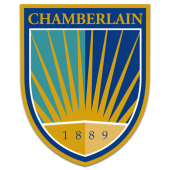
#9: Chamberlain University
Founded in 1889 to address a lack of healthcare services, Chamberlain University continues to increase access to nursing education nationwide. Chicago is just one of over twenty Chamberlain locations across the country. The school offers a three-year BSN program, geared towards students who want to accelerate their degree with summer study. The Chicago campus graduates hundreds of new nurses annually, by far the largest prelicensure BSN program in the state. Despite the school’s size, students receive highly individualized attention, enabling them to pass the NCLEX exam at an 84% rate over the past decade. At the graduate level, Chamberlain University offers a fully online MSN program with tracks for nurse educators, nurse executives, nursing informatics, healthcare policy, population health, and several nurse practitioner specialties. Each MSN track is also available as a standalone graduate certificate. Finally, Chamberlain offers a post-master’s DNP with leadership-themed elective focus areas in advanced practice, education, and healthcare systems.
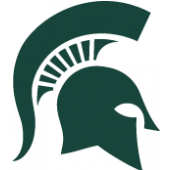
#10: Michigan State University
The College of Nursing at Michigan State University has educated more than 6,000 nurses in its storied history. Over the past decade, MSU is among the top thirty universities nationwide in NIH funding for nursing research. The College of Nursing has received over $7.4 million in grants to enhance its nursing infrastructure. Students benefit from the new three-story, 50,000-square-foot Bott Building for Nursing Education and Research, which includes several seminar classrooms, faculty workstations, a PhD student collaboratory, and a student lounge. The school also supports initiatives for international learning in Africa, China, and England.
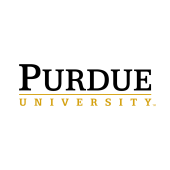
#11: Purdue University
Purdue University’s School of Nursing is part of the College of Health and Human Sciences. The school enrolls 550 undergraduates in its traditional and second-degree BSN programs, as well as 50 graduate students in its MSN and DNP programs. Purdue’s graduating BSN class has passed the NCLEX exam at a strong rate of 94% over the past decade. Nursing students can take advantage of unique facilities including the Center for Nursing History, Ethics, Human Rights, and Innovations; the Center for Nursing Education and Simulation; and the Nursing Center for Family Health. They can also seize the opportunity to study in four international locations.
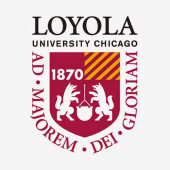
#12: Loyola University Chicago
In 1935, Loyola University Chicago was the first Illinois university to offer a BSN degree. Today, the Marcella Niehoff School of Nursing offers undergraduate (BSN), master’s (MSN), and doctoral (DNP and PhD) nursing programs. More than 85% of the school’s full-time faculty have doctoral degrees. Loyola’s BSN graduates have scored an impressive NCLEX pass rate of 92% over the past decade. Community outreach is a priority for the school, and it operates two nurse-managed centers that also serve as clinical sites for student practice.
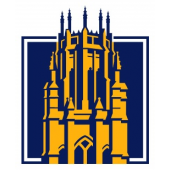
#13: Marquette University
Founded in 1936, the College of Nursing at Marquette University has more than 7,000 alumni and educates approximately 350 nursing students annually. The college offers BSN, MSN, post-master’s certificate, DNP, and PhD nursing programs, with a low 8:1 student-to-faculty ratio across all clinical settings. Graduates of the school’s flagship BSN program have passed the NCLEX exam at an 89% first-time rate over the past decade, including a near-perfect 99.7% first-time pass rate in 2020. The College of Nursing is housed in 46,000-square-foot Emory T. Clark Hall, where students benefit from new facilities like the Wheaton Franciscan Healthcare Center for Clinical Simulation.
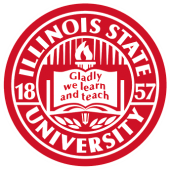
#14: Illinois State University
Mennonite College of Nursing (MCN) offers a broad range of undergraduate and graduate programs. Approximately 150 BSN graduates from the college appear for the NCLEX exam annually, with an excellent pass rate of 94-99% every single year over the past decade. MCN students have access to a 10,000-square-foot Nursing Simulation Laboratory, enjoy an 8:1 student-to-faculty ratio in clinical settings, and can travel to five international locations for nursing experiences. The college is focused on diversity and recently received a $1.1 million grant from the U.S. Department of Health and Human Services towards increasing nursing education for students from disadvantaged backgrounds.
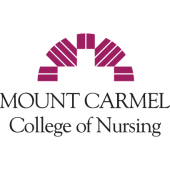
#15: Mount Carmel College of Nursing
Mount Carmel College of Nursing enrolls over 1,000 students and conducts one of the largest baccalaureate nursing programs in the state, with 200+ annual BSN graduates. Over the past decade, these students have passed the NCLEX exam at a 90% rate on their first effort. The college also offers an MSN program with four specialty tracks and a DNP program. Mount Carmel fosters ethnic diversity in its student body and emphasizes small class sizes and personal faculty attention. Students have easy access to hands-on learning at Mount Carmel West Hospital, located right on campus.

#16: Bradley University
Bradley University’s Department of Nursing offers two BSN pathways (four-year, accelerated) and three traditional MSN tracks (general, nursing administration, nursing education). The BSN program graduates 65-90 students annually and has maintained a remarkable 96% NCLEX pass rate over the past decade. Undergraduates learn from 22 experienced faculty and begin clinical experiences during sophomore year. Bradley’s traditional MSN program is complemented by its extensive online curriculum, including an RN-to-MSN bridge, two MSN concentrations (nursing administration, FNP), and two DNP concentrations (leadership, FNP). These online programs provide flexibility and easy access so that working nurses can improve their educational qualifications while in the field.
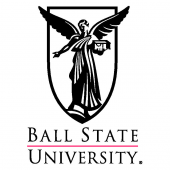
#17: Ball State University
Ball State University’s nursing department focuses intensely on the use of information technology. Twice designated a Center of Excellence by the National League for Nursing, Ball State’s MSN program is the eleventh-largest such online offering in the country. In fact, the department archives all graduate courses for easy access. The traditional BSN program graduates approximately 150 candidates each year, with an impressive NCLEX pass rate of 92% over the past decade. Nursing students can use Ball State’s recently updated Simulation and Information Technology Center on campus.

#18: Grand Valley State University
Since its inception in 1973, Grand Valley State University’s Kirkhof College of Nursing (KCON) has a history of successful innovations in nursing education. KCON has 26 tenured or tenure-track faculty members and hosts a dedicated academic nurse-managed center that provides care to students, faculty, and staff – part of a national network of nursing centers that share expertise. The college offers three BSN tracks (traditional, second degree, RN-to-BSN), two graduate degrees (MSN, DNP), and a post-baccalaureate Interprofessional Palliative and Hospice Care Certificate.
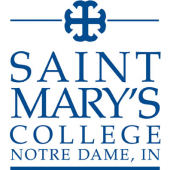
#19: Saint Mary’s College
The Department of Nursing Science at Saint Mary’s College offers three distinct nursing programs: traditional BSN, DNP with BSN entry, and DNP with MSN entry. With just 40-60 graduates annually, the BSN program is very selective. It also prepares students well for their licensure exams: over the past decade, 89% of graduates have passed the NCLEX exam on their first try. Students begin clinical experiences during sophomore year under the supervision of qualified faculty members in small classes. These experiences are facilitated by the school’s affiliations with local hospitals, long-term care facilities, health departments, and other community settings.
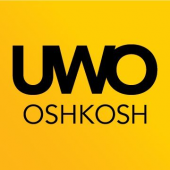
#20: University of Wisconsin - Oshkosh
Graduating its first class of 22 in 1970, the UW Oshkosh College of Nursing has since graduated approximately 6,000 nurses. It offers students a range of undergraduate and graduate programs, including an innovative, predominantly online accelerated bachelor of science in nursing. Each year, approximately 200 prelicensure BSN students pass the NCLEX exam at a consistently high rate of 92-99%. UW Oshkosh’s clinical nurse leader graduate program has also maintained a stellar 100% pass rate on the Commission on Nurse Certification CNL certification exam since 2009. The school provides students evidence-based hands-on clinical training, with opportunities for international study in South America and India.
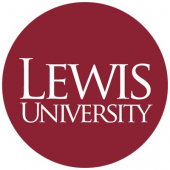
#21: Lewis University
The College of Nursing and Health Professions at Lewis University has forty years of experience educating nurses. Lewis offers a full range of nursing programs including traditional BSN, RN-to-BSN, MSN with six specialization options, a dual MSN/MBA degree, post-master’s certificates, and a doctor of nursing practice. The college graduates 110-140 prelicensure BSN students each year, who have achieved a remarkable 96% NCLEX pass rate over the past decade. Lewis students learn through one-on-one faculty interactions in state-of-the art simulation labs, and they experience diverse patient populations though the college’s 50+ clinical affiliations. Many courses are also offered online to accommodate a variety of schedules.
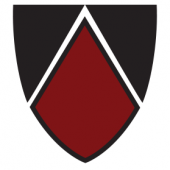
#22: Edgewood College
Edgewood College has awarded nursing degrees since 1983. The Henry Predolin School of Nursing recently launched a DNP program and now offers the full gamut of baccalaureate, master’s, and doctoral nursing degrees. The traditional BSN program graduates about 100 students each year. These individuals have passed the NCLEX exam at a 92% first-time rate over the past decade, including a stellar 99% first-time pass rate in 2019. Nursing students take advantage of the college’s clinical partnerships with over 70 facilities in southcentral Wisconsin, including University of Wisconsin Hospital and Clinics, American Family Children’s Hospital, and UnityPoint Health - Meriter Hospital.
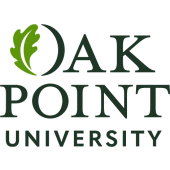
#23: Oak Point University
Oak Point University offers a broad range of degree pathways for aspiring nurses. Prelicensure students can enroll in the university’s traditional BSN program, which produces nearly 400 graduates annually. Oak Point’s BSN students have averaged an 80% first-time pass rate on the NCLEX-RN licensure exam over the past decade. Post-licensure students have several options, including RN-to-BSN, RN-to-MSN, traditional MSN, and DNP pathways. Oak Point offers four nurse practitioner specializations within its MSN program, as well as a nurse educator option. Two NP specializations are also available as post-master’s certificates. The DNP curriculum is specifically designed for the working professional, so the program is offered completely online. It consists of 32 semester hours and takes just six semesters, or two years of year-round study, to complete.
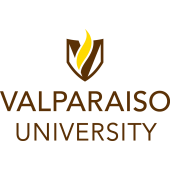
#24: Valparaiso University
Valparaiso University’s College of Nursing and Health Professions offers undergraduate students BSN, ABSN, RN-to-BSN, and RN-to-MSN options. At the graduate level, BSN-educated nurses may pursue an MSN with a focus on nursing education, a joint MSN/MBA program, or a DNP degree. Valparaiso graduates a prelicensure BSN class of 100-140 students annually. These RN candidates have scored a 92% first-time pass rate on the NCLEX licensure examination over the past decade. More than 60% of the faculty hold doctoral nursing degrees, and students enjoy access to state-of-the-art facilities such as the Virtual Nursing Learning Center and the SIM Center.
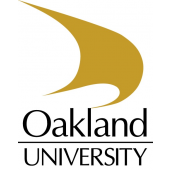
#25: Oakland University
Oakland University’s School of Nursing is the largest state-supported nursing program in Michigan, with more than 1,600 undergraduates and 200 graduate students. Greater than 95% of alumni find employment in the tri-county area, contributing substantially to the region’s economy. The school has approximately 270 clinical partners including some of Detroit’s top hospitals and facilities, and it boasts 360 one-on-one preceptor experiences. Nursing students can apply to a broad range of undergraduate and graduate programs, including a unique MSN in forensic nursing.
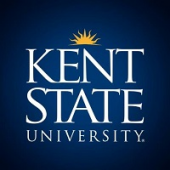
#26: Kent State University
In its mission to address the healthcare needs of Ohioans, Kent State University offers nursing programs at several sites in Northeast Ohio. The ADN program graduates 200-250 new nurses annually at regional campuses in Ashtabula, East Liverpool, Geauga, and Tuscarawas. The prelicensure BSN program graduates another 400-500 students per year at the main campus in Kent and regional campuses in Geauga, Salem, Stark, and Trumbull. Kent State students consistently perform well on the NCLEX licensure exam, scoring an 86% ADN pass rate and an 89% BSN pass rate over the past decade. Graduate nursing students can select from four online tracks and five hybrid (mix of in-person and online) tracks in the MSN program. Kent State also offers a joint MSN/MBA degree and both types of doctoral nursing degrees. The university boasts clinical experiences with more than 350 partners and a 99.6% job placement rate within six months of graduation.
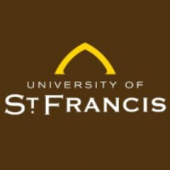
#27: University of St. Francis
USF’s Cecily & John Leach College of Nursing draws on its Catholic heritage of community service. The school offers a broad range of baccalaureate, master’s, and doctoral nursing degrees, including a popular RN-to-BSN bridge program for existing nurses with an associate degree in nursing (ADN) or hospital diploma. The school has a small graduating class of 60-90 traditional BSN students who consistently perform very well on the NCLEX licensure exam. Indeed, USF’s first-time NCLEX pass rate over the last decade has been an impressive 91%. Students have access to a virtual simulation laboratory, and they can take advantage of acute and long-term care clinical experiences in a variety of community settings.
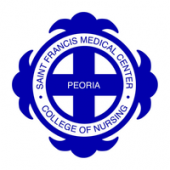
#28: Saint Francis Medical Center College of Nursing
As the only Catholic nursing school in Peoria, Saint Francis Medical Center College of Nursing is proud of its heritage. It offers students a range of programs including prelicensure BSN, RN-to-BSN, an MSN with eight specialty tracks, several post-master’s certificates, and a DNP taught predominantly online. Graduates from the college’s prelicensure BSN program have passed the NCLEX exam at an 86% rate over the past decade. The college provides students with hands-on clinical experiences and a low student-to-faculty ratio. Its recently renovated Nursing Learning Center is a state-of-the-art facility with four simulation laboratories.
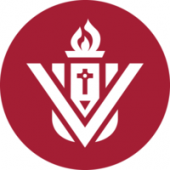
#29: Viterbo University
Viterbo University’s School of Nursing is a fully accredited institution that offers both undergraduate and graduate degrees. Over 600 nursing students are currently enrolled across the school’s four nursing programs: traditional BSN, RN-to-BSN, BSN-to-DNP, and MSN-to-DNP. The traditional BSN program graduates 100-130 new nurses annually, and these students have passed the NCLEX exam at a strong 92% first-try rate over the past decade. Nursing students have access to 35 fulltime and part-time faculty, a well-equipped clinical simulation learning center, and global education opportunities in Belize, Guatemala, Japan, and Korea.
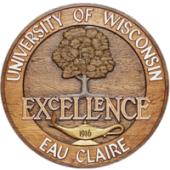
#30: University of Wisconsin - Eau Claire
UW Eau Claire graduated its first nursing class in 1968. Today, the College of Nursing and Health Sciences offers a range of nursing degrees including traditional BSN, BSN completion, MSN, and DNP programs. In total, the college educates 800 undergraduate and graduate students and offers 300+ clinical affiliations. Approximately 100-130 students complete the traditional BSN program annually, with a stellar 93% first-time NCLEX pass rate over the past decade. Nearly 100% of students are either employed or enrolled in further nursing education within six months of graduation.
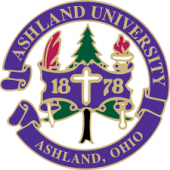
#31: Ashland University
The Dwight Schar College of Nursing & Health Sciences at Ashland University has nearly a dozen nursing program offerings. Undergraduates may choose from four BSN tracks including traditional, advanced entry, accelerated second degree, and online RN-to-BSN. Over the past decade, prelicensure BSN students have achieved a noteworthy 91% pass rate on the NCLEX licensure exam. At the graduate level, Ashland offers both BSN and MS/MSN entry points for its DNP program. Students entering post-BSN may specialize in family nurse practitioner or health systems leadership, while those entering post-MS/MSN may specialize in advanced practice nursing or health systems leadership. The college also offers certificates for aspiring school nurses and nurse educators. All graduate programs are offered online.

#32: Xavier University
The nursing program at Xavier University is one of just a handful of programs in the nation endorsed by the American Holistic Nursing Association. Students learn from faculty with a diverse range of specialties including epidemiology, natural health, gerontology, and occupational health. With an emphasis on improving medical care for the Hispanic community, Xavier’s nursing department has also created an exclusive program that specializes in educating nurses fluent in Spanish. Graduates of all programs perform well on their licensure exams. The accelerated BSN class scored a perfect 100% NCLEX pass rate in 2018, and the direct entry MSN program accomplished the same feat in both 2017 and 2019.
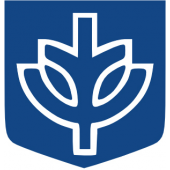
#33: DePaul University
DePaul’s School of Nursing was the first in Illinois to offer a two-year Master’s Entry to Nursing Practice (MENP) program for non-nurses. The school also conducts a traditional undergraduate BSN program, an RN-to-MSN pathway for nurses who hold an ADN or hospital diploma, and a DNP program with specializations for aspiring nurse anesthetists, family nurse practitioners, and adult-gerontology nurse practitioners. The MENP program graduates almost 200 students annually, with an impressive 90% first-time NCLEX pass rate over the past decade. DePaul’s pass rate on the nurse anesthesia certification exam has reached a stellar 100% in recent years. Students enjoy a network of more than 75 clinical sites and state-of-the-art facilities across two campuses in Lincoln Park and North Chicago.
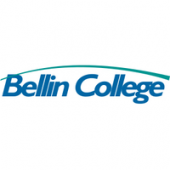
#34: Bellin College
Bellin College specializes in nursing and medical imaging education. Undergraduates can pursue several BSN pathways including traditional prelicensure, sophomore and junior transfer, an accelerated 15-month option, and RN-to-BSN completion. The college graduates approximately 100 prelicensure BSN students each year. Over the past decade, these students have averaged an impressive 94% first-time pass rate on the NCLEX licensure examination. At the graduate level, Bellin College offers an MSN degree with family nurse practitioner and nurse educator specialties. The nurse educator curriculum is available online. Bellin’s nursing programs are noted for their extensive clinical experiences and numerous service learning opportunities.
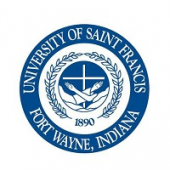
#35: University of Saint Francis
The University of Saint Francis offers a breadth of nursing degrees and pathways. Undergraduate options include an ASN program at both the Fort Wayne and Crown Point campuses, a traditional four-year BSN program, and a BSN completion pathway for working RNs. Over the past decade, USF’s ASN graduates have maintained an 87% pass rate on the NCLEX licensure exam, while BSN students have achieved an exceptional 93% pass rate. Graduate options include an MSN degree with an FNP focus, an RN-to-MSN transitional track, a BSN-to-DNP program in nurse anesthesia, and an MSN-to-DNP pathway focused on population health.

#36: Ursuline College
Ursuline was the first women’s college in Ohio and one of the first women’s colleges in the country. Its Breen School of Nursing maintains this tradition, educating female nurses in the following programs: traditional BSN, accelerated BSN, RN-to-BSN, traditional MSN, RN-to-MSN, and DNP. The school provides five distinct MSN tracks: adult nurse practitioner, family nurse practitioner, palliative care, adult-gerontology clinical nurse specialist, and nursing education. Approximately 75-100 students graduate annually from the four-year BSN program, and they have maintained a solid NCLEX exam pass rate of 88% over the past decade.
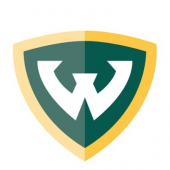
#37: Wayne State University
Wayne State University is the third-largest public educational institution in Michigan and one of the nation’s fifty largest public schools. The university serves over 27,000 students across thirteen distinct colleges and schools. The College of Nursing offers a breadth of BSN options for undergraduates including traditional, freshman direct-admit, honors, second degree, veterans, and RN-to-BSN pathways. Prelicensure BSN students consistently perform well on the NCLEX-RN licensure exam, with a 94% first-time pass rate in 2016 and a perfect 100% first-time pass rate in 2015. Graduate students can pursue six different tracks in the MSN program and eight distinct clinical specialties in the DNP curriculum. Wayne State also conducts a nursing PhD program that offers full-time and part-time pathways to both BSN- and MSN-prepared entrants.
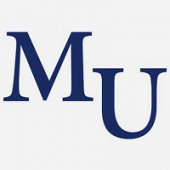
#38: Marian University
Marian University’s Leighton School of Nursing offers several pathways to a BSN degree. In addition to a traditional four-year BSN program, the school offers an on-campus ABSN, an online ABSN program for residents of Indianapolis and Nashville, and an online RN-to-BSN program. Over the past decade, the school’s prelicensure BSN students have passed the NCLEX exam at an 88% first-try rate. Marian University recently launched a new Master of Science in Nursing Education curriculum. In addition, the school offers the terminal DNP degree for two APRN specializations: family nurse practitioner and certified registered nurse anesthetist. The MSN and DNP programs are delivered through a hybrid platform.
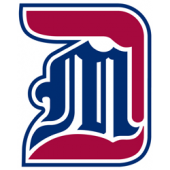
#39: University of Detroit Mercy
The McAuley School of Nursing at the University of Detroit Mercy offers a broad range of nursing programs. Options include a traditional BSN, a second degree BSN, an RN-to-BSN completion pathway, and a DNP with post-BSN and post-MSN entry points. The DNP program has several popular majors including adult-gerontology clinical nurse specialist, clinical nurse leader, health systems management, family nurse practitioner, and nursing education. Detroit Mercy also offers a nurse anesthesia DNP degree that has been ranked among the top ten in the country by U.S. News & World Report. An impressive 100% of nurse anesthesia graduates find employment within six months of graduation.

#40: Walsh University
The Gary and Linda Byers School of Nursing at Walsh University offers global learning experiences in countries like Haiti, Tanzania, and Italy. Students also enjoy close proximity to local hospitals like Cleveland Clinic, University Hospitals, and Mercy Medical Center. The school graduates 60-90 students annually from its traditional four-year and fast-track BSN programs. These students have scored an impressive 92% first-time NCLEX pass rate over the past decade. Walsh University also integrates four specialty tracks across its MSN, post-graduate certificate, and DNP curriculum: adult-gerontology acute care nurse practitioner, family nurse practitioner, nurse educator, and psychiatric-mental health nurse practitioner.
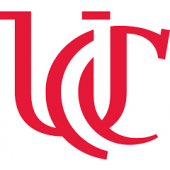
#41: University of Cincinnati
The College of Nursing at the University of Cincinnati offers nursing programs from the undergraduate to the professional level. There are two pathways to the BSN: a traditional prelicensure program and an online RN-to-BSN completion program. The prelicensure program generates 200-250 new nurses annually, and these graduates have maintained an 85% first-time NCLEX pass rate over the past decade. At the graduate level, UC offers two entry points for the MSN degree (traditional post-BSN, accelerated direct-entry) and a breadth of specialization options, including nurse midwifery and five NP tracks. The university also offers both DNP and nursing PhD programs. DNP students may complete four additional online courses (12 credit hours) to earn a nurse education certificate.
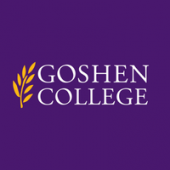
#42: Goshen College
Goshen College is a private Christian liberal arts college known for its affordability and sustainability. Named one of the greenest colleges in the United States, the school conducts Indiana’s oldest baccalaureate nursing program. BSN graduates have scored an impressive 88% NCLEX pass rate over the past decade, and 96% are employed as nurses within a year of graduation. At the graduate level, Goshen College offers an MSN program for aspiring family nurse practitioners. Nearly 100% of the school’s MSN graduates are employed in an APRN role within a year of program completion. The college also conducts an online post-master’s DNP program in collaboration with Eastern Mennonite University. Goshen nursing students enjoy partnerships with a breadth of local healthcare facilities including Borgess Health System, Saint Joseph Regional Health System, and South Bend Clinic.
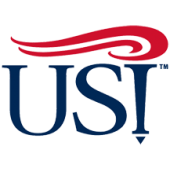
#43: University of Southern Indiana
USI’s College of Nursing and Health Professions offers a prelicensure BSN program, an RN-to-BSN pathway, an MSN degree, several APRN certificates, and a DNP program. The college adopts a unique dedicated education unit (DEU) model, featuring exclusive clinical education partnerships with both Deaconess Hospital and St. Mary’s Hospital. The school’s BSN graduates have an outstanding NCLEX pass rate of 98% over the past decade. Students applying for APRN certifications from the American Nurses Credentialing Center have scored a perfect 100% pass rate on several exams since 2012.
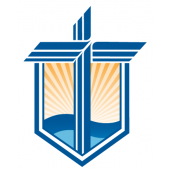
#44: Concordia University Wisconsin
The School of Nursing at Concordia University Wisconsin offers traditional BSN, accelerated BSN, and RN-to-BSN programs at the undergraduate level, with a strong foundation in the liberal arts. The prelicensure BSN tracks graduate 40-50 students annually, with an impressive 92% first-time NCLEX pass rate over the past decade. CUW undergraduates benefit from global study trips and clinical experiences that start during their sophomore year. The university’s MSN program has specialty tracks in four areas: adult-gerontology primary care nurse practitioner, family nurse practitioner, healthcare informatics, and nurse educator. The school also offers an accelerated RN-to-BSN-to-MSN bridge program, several graduate certificates, a DNP degree with post-baccalaureate and post-master’s pathways, and a unique parish nursing certificate.
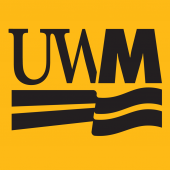
#45: University of Wisconsin - Milwaukee
Operational since 1965, the UW Milwaukee College of Nursing conducts the largest nursing program in the state. The college boasts over 7,000 alumni and currently enrolls 1,200 undergraduates and 300 graduate students. UW Milwaukee offers excellent nursing facilities, 95 dedicated faculty, and 200+ clinical affiliations. Each year, approximately 200-225 students complete the traditional BSN program. These students pass the NCLEX licensure exam at a solid rate; for example, 91% of students passed in 2020. UW Milwaukee was the first university to offer an asynchronous online nursing PhD in 2003. Today, most campus-based undergraduate and graduate courses are available online as well.
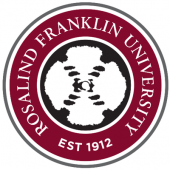
#46: Rosalind Franklin University of Medicine and Science
Rosalind Franklin University of Medicine and Science launched a new College of Nursing in 2022, the first of its kind in Lake County. The college offers two graduate programs: a 24-month direct entry MSN curriculum for prelicensure students, and a 33-month DNP pathway for aspiring psychiatric-mental health nurse practitioners. RFU designed the two programs to build the local nursing workforce and to expand community access to nursing education. In addition, the university’s long-standing College of Health Professions offers a DNP nurse anesthesia program with two pathways. The nurse anesthesia entry pathway was created for RNs who wish to continue their education to become CRNAs and earn the DNP degree. The program curriculum is predominately delivered on campus, with some upper-level doctoral content presented online. The DNP completion pathway, which was created for current CRNAs, builds on the competencies and achievements of an MSN nurse anesthesia degree. The program can be completed online in just 24 months of part-time study.
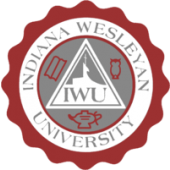
#47: Indiana Wesleyan University
Indiana Wesleyan University’s School of Nursing graduated its first class of 33 students in 1975. Today, the school employs 200 faculty and educates 2,000 full-time nursing students across its 16 regional education centers in Indiana, Kentucky, and Ohio, as well as online. IWU offers a variety of nursing programs including three BSN tracks (traditional, accelerated, RN-to-BSN), four MSN majors, an MSN/MBA dual degree, and an online DNP with a classroom-based residency. The Marion campus graduates 140-170 prelicensure BSN students each year, who have passed the NCLEX exam at a strong 91% rate over the past decade. All students can take advantage of the Fortune Simulation Lab’s cutting-edge facilities, including eight simulators.
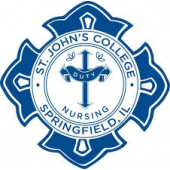
#48: St. John’s College of Nursing
St. John’s College of Nursing offers traditional BSN, accelerated BSN, RN-to-BSN, and MSN programs. The traditional BSN is designed for students who have already completed 56 semester hours of lower-division coursework, while the accelerated BSN is designed for students who have already received a bachelor’s degree in another field. Across these two prelicensure programs, St. John’s students have maintained a strong 90% pass rate on the NCLEX-RN exam over the past decade. The RN-to-BSN program is an online, postlicensure pathway for nurses who hold an unencumbered RN license and have graduated from an accredited diploma or ADN program. The MSN program has two focal areas: nursing administration / leadership and family nurse practitioner.

#49: Otterbein University
Otterbein University has a proud heritage of equality and inclusion, including its status as the first college in the nation to include women as both faculty members and students. The Department of Nursing’s flagship BSN program prepares students for careers in acute care, primary care, extended care, mental health, and community health settings. Coursework covers critical topics like pharmacology, nursing research, and informatics. The BSN program graduates 40-60 students annually, with an impressive 95% first-time NCLEX pass rate since 2016. The class of 2018 scored a perfect 100% (48 out of 48) NCLEX pass rate. Otterbein also offers graduate nursing programs that award MSN and DNP degrees. Concentrations are available for aspiring family nurse practitioners, nurse anesthetists, and psychiatric-mental health nurse practitioners.
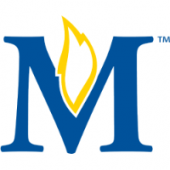
#50: Madonna University
Madonna University’s College of Nursing and Health offers a breadth of undergraduate and graduate nursing programs. Undergraduates can pursue a prelicensure BSN or RN-to-BSN degree completion. Graduate students have five MSN specialty tracks, a joint MSN/MBA dual degree option, four graduate certificates, and a post-master’s DNP degree. These nursing programs embody the university’s Catholic and Franciscan commitment to serving the community. Twenty-six nursing faculty members guide students through lab experiences, high-fidelity simulation, and clinical practice in a variety of healthcare settings. The college’s Nursing Simulation Lab has four mock hospital rooms, a home health community room, and a ten-bed skills laboratory.
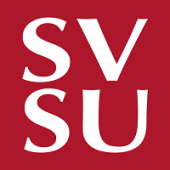
#51: Saginaw Valley State University
The College of Health and Human Services at Saginaw Valley State University offers several options in both baccalaureate and graduate nursing education. Undergraduate programs include a prelicensure BSN and an RN-to-BSN completion pathway. Graduate students can pursue either a traditional MSN or an RN-to-MSN pathway. The MSN program has an accelerated option and four tracks including family nurse practitioner, clinical nurse leader, nurse educator, and nurse administrator. A primary care FNP post-graduate certificate is also available, with non-clinical courses offered in a hybrid format for working nurses who already hold a graduate nursing degree in another concentration.
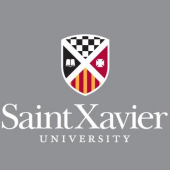
#52: Saint Xavier University
Founded in 1935, the Saint Xavier University School of Nursing has educated well over 5,000 nurses and was the first nursing school in the state to offer an accredited baccalaureate program. Saint Xavier has received four consecutive NLN Center of Excellence designations for enhancing student learning and professional development. The school engages 33 faculty members across its numerous undergraduate and graduate nursing programs. BSN students have passed the NCLEX exam at an 87% rate over the past decade, significantly above state and national averages.
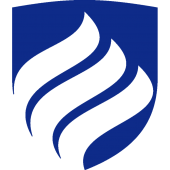
#53: Elmhurst University
Elmhurst University’s Department of Nursing and Health Sciences offers a traditional prelicensure BSN, an RN-to-BSN completion pathway, and an MSN program with a master’s entry option and three concentrations (clinical nurse leader, nurse educator, nurse administrator). Over the past decade, graduates of the traditional BSN program have passed the NCLEX exam at a 90% rate on their first attempt. Master’s entry students have fared even better, posting a stellar 96% NCLEX pass rate since the program’s inception. Elmhurst is focused on innovation: the school’s preoperative nursing course was the first of its kind in the Chicago area. Located just 16 miles from downtown Chicago, the university’s students have access to a wealth of premier institutes for clinical studies.
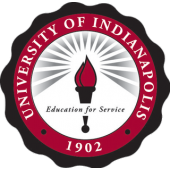
#54: University of Indianapolis
UIndy’s School of Nursing is the only institution in the state that offers both nurse-midwifery and neonatal nurse practitioner programs. The school also provides five other MSN specializations; traditional, accelerated, and degree-completion BSN programs; and a doctorate of nursing practice. Prelicensure students from UIndy’s BSN programs have achieved an NCLEX exam pass rate of 88% over the past decade. The school’s “Education for Service” motto is deeply embedded in its nursing curriculum, including a number of student volunteer and mission opportunities each year.
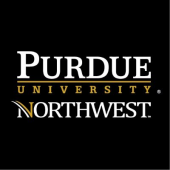
#55: Purdue University Northwest
Purdue University Northwest was formally established in 2016 through the merger of Purdue University’s Calumet and North Central campuses. Both campuses date back to a 1946 founding in the aftermath of World War II. PNW’s College of Nursing is a National League for Nursing Center of Excellence, one of just 62 institutions so designated nationwide. Undergraduates can choose from several BSN pathways including traditional, accelerated, and online RN-to-BSN. Prelicensure students have achieved an 88% first-time NCLEX pass rate over the past decade (including the track records of the legacy institutions), with a stellar 98% pass rate in 2018. At the graduate level, PNW offers an MSN degree with concentrations in adult-gerontology clinical nurse specialist, family nurse practitioner, nurse education, and nurse executive. The university also launched a DNP program in 2015.
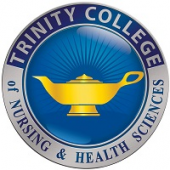
#56: Trinity College of Nursing & Health Sciences
Trinity College of Nursing & Health Sciences offers three BSN pathways depending upon the student’s educational background. The traditional BSN (BSN-B) allows students who have completed all general education courses to earn a BSN in six semesters. The accelerated BSN (BSN-A) provides a more rapid 15-month timeline for students with a non-nursing baccalaureate degree. Students in the BSN-A and BSN-B pathways take the NCLEX-RN licensure exam. Their performance is stellar, averaging a 93% first-time pass rate over the past decade. The completion BSN (BSN-C) is designed for RNs who already hold an ADN or nursing diploma and would like to earn a bachelor’s degree. Trinity College also offers a two-year MSN degree. This is a direct entry program designed for students who hold a bachelor’s degree in a non-nursing discipline.
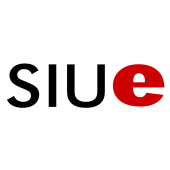
#57: Southern Illinois University Edwardsville
The SIUE School of Nursing provides traditional BSN, accelerated BSN, and RN-to-BSN degree programs for undergraduates. It also offers three distinct MSN tracks (healthcare informatics, nurse education, healthcare and nursing administration) and a DNP program with two specialization options (nurse anesthesia, family nurse practitioner). BSN graduates have maintained a solid 84% NCLEX pass rate over the past decade. SIUE students learn in active classroom settings and a high-technology simulation laboratory, and they are guaranteed clinical placement among the school’s 28 community partners in the St. Louis metropolitan area. SIUE pursues a federally funded program called SNAP, which is designed to recruit racially, ethnically, and culturally diverse high school graduates.
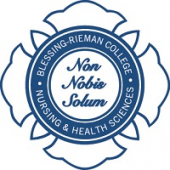
#58: Blessing-Rieman College of Nursing & Health Sciences
Blessing-Rieman College of Nursing & Health Sciences offers four BSN pathways: a traditional BSN, a BSN transfer option, a second degree BSN, and an online RN-to-BSN. In total, the college graduates 40-60 prelicensure BSN students annually, and they have achieved an impressive 90% pass rate on the NCLEX exam over the past decade. Nursing students receive hands-on learning in the school’s multimillion-dollar Simulation Center, which features a hospital unit complete with nine patient rooms and a nurses’ station. To hone their skills, students work one-on-one with an instructor on different types of manikins including male, female, pediatric, and a birthing mother. Blessing-Rieman also offers an online MSN degree with tracks in nursing administration and nursing education.

#59: Alverno College
Alverno College’s JoAnn McGrath School of Nursing and Health Professions has trained skilled caregivers since 1932. The school offers a plethora of nursing pathways and specializations. Undergraduates can pursue a traditional BSN degree, an accelerated 2+2 program, or an RN-to-BSN completion option. The two prelicensure programs collectively graduate 150-200 students annually, with a solid 89% first-time NCLEX pass rate over the past decade. Students benefit from guaranteed clinical placements, as well as extensive technical practice in the college’s clinical learning and simulation centers. Graduate nursing students can pursue five advanced practice specializations through either an MSN degree or a post-master’s certificate. In 2017, Alverno College unveiled its first doctoral program: a post-master’s DNP conducted in a flexible hybrid format with leadership and direct care tracks. In January 2020, the college launched a direct-entry MSN program that enables students with a non-nursing bachelor’s degree to enter the nursing profession after 18 months of intensive, fulltime study.
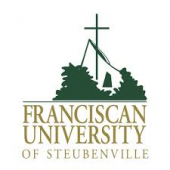
#60: Franciscan University of Steubenville
Franciscan University’s nursing program draws on its Christian values, providing education geared towards holistic health-oriented care. The program offers a traditional BSN for undergraduate students, an RN-to-BSN articulation option for registered nurses, and an MSN program with a family nurse practitioner specialization. Franciscan University’s small BSN graduating class, typically 50-60 students annually, has passed the NCLEX exam at an 89% rate over the past decade. Students have access to a well-equipped Nursing Simulation Laboratory that incorporates the latest Laerdal human patient simulator technology.
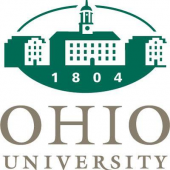
#61: Ohio University
The BSN at Ohio University is one of the fastest-growing programs in the school’s College of Health Sciences and Professions. It is the only CCNE-accredited four-year program in southeast Ohio, serving the university’s mission to upgrade Appalachian Ohio health services. Ohio University conducts both the BSN program and a two-year ADN program at its satellite campuses in Chillicothe, Southern (Ironton), and Zanesville. The BSN program is also offered at the main campus in Athens. At the graduate level, Ohio University has an online MSN degree with tracks for aspiring nurse educators, nurse leaders, and nurse practitioners, including NP options in adult-gerontology, family, and psychiatric-mental health. All five MSN tracks are also available as post-graduate certificates. Finally, Ohio University offers a DNP program with a concentration in advanced clinical or executive practice and with pathways for both BSN- and MSN-educated nurses.
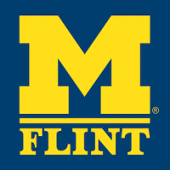
#62: University of Michigan - Flint
With nearly a dozen degree pathways, the School of Nursing at the University of Michigan - Flint has one of the largest nursing programs in the country. Undergraduate options include the traditional BSN, accelerated second degree BSN, RN-to-BSN, veterans BSN, and a nursing direct program for exceptional high school seniors. UM-Flint also offers a breadth of graduate nursing options, including the Rural Health program and the Academic Partnerships for Nurse Practitioner Students program. These unique programs place MSN and DNP nurse practitioner students in primary care clinics in rural and underserved settings. Licensed nurse practitioners may also earn a post-graduate PMHNP certificate.

#63: Governors State University
Governors State University’s nursing curriculum incorporates the latest recommendations from the Carnegie Foundation Report and the Institute of Medicine. The Department of Nursing aims to educate nurse leaders who will address the challenges of local, regional, and national healthcare reform. The school has 15 full-time nursing faculty and primarily offers graduate programs, including a DNP and three MSN concentrations (nursing administration, CNS in adult healthcare, FNP). Governors State also conducts a completely online RN-to-BSN completion program for registered nurses.
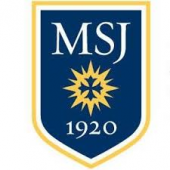
#64: Mount St. Joseph University
The Department of Nursing at Mount St. Joseph University has more than eighty years of experience educating nurses. The department offers several undergraduate and graduate options, including the MAGELIN (Master’s Graduate Entry-Level into Nursing) program for second-degree students. This program has maintained a first-time NCLEX pass rate of 88% over the past decade. The school’s prelicensure BSN students also perform well on their exams: over the past decade, they have passed the NCLEX exam at an 85% rate on their first attempt. Mount St. Joseph also offers traditional MSN and DNP programs for existing registered nurses.
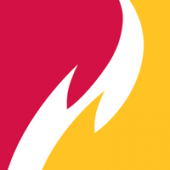
#65: Ferris State University
Ferris State University has five nursing degree pathways including prelicensure BSN, RN-to-BSN, traditional MSN, RN-to-MSN, and DNP. The prelicensure BSN program is a five-semester professional sequence track for traditional nursing students. The RN-to-BSN is designed for nurses who were originally prepared at the ADN or diploma level. The MSN programs at Ferris offer three concentrations: nursing administration, nursing informatics, and nursing education. The RN-to-BSN and MSN pathways are all offered fully online. Launched in 2017, the DNP is mostly online as well with one intensive year. Students may complete the program within two calendar years.
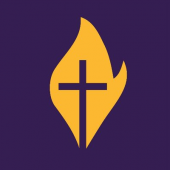
#66: Olivet Nazarene University
Olivet Nazarene University offers nursing instruction in the context of a Christian liberal arts education. Students learn from twenty faculty members who lead an array of nursing programs, including BSN, ABSN, RN-to-BSN, two MSN tracks (generic and FNP focus), and a post-master’s FNP certification. Olivet’s small class sizes and personalized instruction have helped BSN graduates to pass the NCLEX exam at an 89% rate over the last decade. The school’s well-equipped Simulation Lab includes wireless smart mannequins, and the nursing curriculum incorporates innovative learning techniques like disaster simulation.
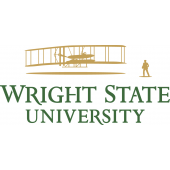
#67: Wright State University
The Wright State University-Miami Valley College of Nursing and Health enrolls almost 700 undergraduate and 220 graduate nursing students. Classes in a range of nursing disciplines and specializations are led by 45 experienced faculty. The college graduates a large BSN class of 150-200 students each year, who have passed the NCLEX exam at rates as high as 97.8% in recent years. A multi-year strategic initiative called the Wright Nurse Project helps the college improve its curriculum towards more evidence-based pedagogy. Students have several opportunities for international immersion, including a study abroad program in the United Kingdom and global health initiatives in Tanzania.
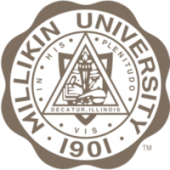
#68: Millikin University
Millikin University’s School of Nursing offers BSN, MSN, and DNP degree programs. The BSN program has both a traditional prelicensure pathway and an online RN-to-BSN pathway. The MSN program has a track for RNs who already hold a BSN degree, as well as a master’s entry into nursing practice: prelicensure (MENP-PL) track for aspiring nurses with a non-nursing bachelor’s degree. The DNP has four options: BSN-to-DNP nurse anesthesia, BSN-to-DNP family nurse practitioner, MSN-to-DNP family nurse practitioner, and DNP completion for APRNs. A school nurse certificate is also available. Traditional BSN graduates have scored an 88% pass rate on the NCLEX exam over the past decade, while their MENP-PL counterparts have achieved a perfect 100% pass rate eight out of the last nine years.
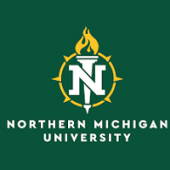
#69: Northern Michigan University
Northern Michigan University’s School of Nursing places special emphasis on developing critical thinking skills and therapeutic techniques through both classroom and clinical experiences. Students in the program work with faculty and other nurses in a variety of local and regional healthcare facilities to gain hands-on experience in actual patient care. Students will also hone their skills through lab and simulation experiences, as well as through clinical courses that take place in a state-of-the-art Nursing Technology Center. Graduates of the NMU nursing program enjoy a 90% job placement rate within six months of completing the program.
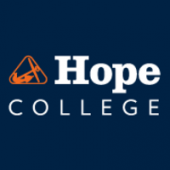
#70: Hope College
Hope College is a four-year private liberal arts college that serves more than 3,000 students across ninety majors, minors, and pre-professional programs. The Department of Nursing offers a prelicensure BSN program that boasts a 97% NCLEX exam pass rate over the last seven years. Students graduate from the program with hands-on research experience and at least 500 hours of clinical practice. Nursing majors can choose to graduate with a minor – or even a double major – in related fields like psychology, sociology, or modern and classical languages.
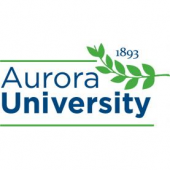
#71: Aurora University
Aurora University offers a traditional prelicensure BSN program at both the main AU campus and at George Williams College in Williams Bay, Wisconsin. The program features small class sizes, with a 32:1 student-to-faculty ratio in classes and an 8:1 ratio in clinical practicum. Nursing students complete 40 hours of prerequisites, 59 hours of nursing courses, and clinical experiences at area hospitals, clinics, and community agencies. Aurora University graduates approximately 150 newly minted nurses each spring. Over the past decade, these students have sustained a strong 91% first-time pass rate on the NCLEX-RN licensure examination.
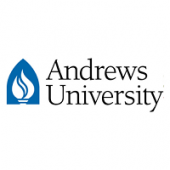
#72: Andrews University
The Andrews University School of Health Professions has two undergraduate nursing programs and one graduate nursing program. Undergraduates can pursue either a prelicensure BSN degree or an online RN-to-BSN. Prelicensure BSN graduates have enjoyed strong NCLEX-RN exam pass rates of 94-100% over the past several years. At the graduate level, the university offers a DNP program with family nurse practitioner emphasis. Andrews is the first Seventh-day Adventist school to allow students to matriculate directly from a bachelor of science track into the DNP program.
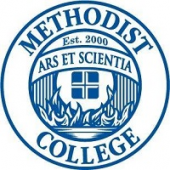
#73: Methodist College
Methodist College offers baccalaureate and master’s degree programs in nursing, with several options at each degree level. The BSN has a traditional prelicensure track, an RN-to-BSN completion pathway, and an accelerated second degree track. Students also have the option to add a certificate, such as gerontology, or a minor in fields like arts and humanities, social and behavioral sciences, or mathematics and science. The college graduates 130-180 students annually across the prelicensure BSN tracks. These students have passed the NCLEX-RN licensure exam at an 84% first-attempt rate over the past decade. The MSN program offers generalist, nurse educator, and nurse leader executive tracks. The program also recently launched a prelicensure option for individuals who hold a bachelor’s degree in a non-nursing field.
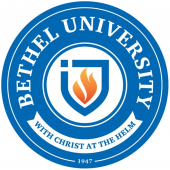
#74: Bethel University
Bethel University was founded in 1947 by a group of Missionary Church visionaries. The university provides more than fifty areas of study in total. Bethel’s School of Nursing offers several degree programs including ADN, traditional BSN, RN-to-BSN completion, and MSN pathways. Students in all programs will practice on adult and child mannequins in high-fidelity computer-based simulation labs, mimicking the complex patient environments found in real-world settings. Bethel also conducts medical mission trips to Kenya, Guatemala, and the Dominican Republic. The school’s NCLEX-RN pass rates are impressive, with an 88% first-time pass rate for ADN students and a 93% first-time pass rate for BSN students over the past decade.
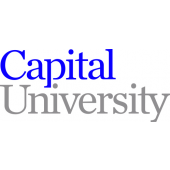
#75: Capital University
Capital University offers nursing programs for those new to the field and for those seeking an advanced degree. The university has traditional and accelerated BSN programs, an MSN degree with several pathways and specializations, and post-master’s certificates for aspiring nurse educators and adult-gerontology clinical nurse specialists. The traditional BSN is for students with no previous nursing education, while the accelerated pathway is for students who have completed a bachelor’s degree in a non-nursing field. Capital graduates 70-100 students annually across both programs, with a solid 88% NCLEX pass rate over the past decade. The MSN program has both standalone and joint degree (MSN/MBA or MSN/JD) options with five possible concentrations: administration, adult-gerontology clinical nurse specialist, legal studies, nursing education, and theological studies.

#76: Western Michigan University
The Bronson School of Nursing at Western Michigan University has a unique nursing program that encourages interprofessional activities with other College of Health and Human Services disciplines. Degree pathways include the traditional BSN, RN-to-BSN, and MSN. The four-year BSN prepares students for leadership and management roles at hospitals, clinics, public health agencies, schools, occupational settings, and health and wellness centers. The RN-to-BSN allows licensed RNs to earn the BSN online in two years or less. The MSN also features online course delivery along with nurse educator, addiction, and gerontology tracks. Students in all programs enjoy state-of-the-art classrooms and labs, clinical experiences at major healthcare facilities, and extensive job placement services.
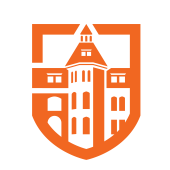
#77: Carroll University
The College of Health Sciences at Carroll University offers a traditional prelicensure bachelor of science in nursing. Students develop entry-level nursing skills through a combination of coursework, laboratory simulations, and clinical experiences. Nursing courses and laboratory simulations begin during freshman year. As students move through the program, they have the opportunity to focus their training on specific domains like medical-surgical nursing, pediatric nursing, palliative care, psychiatric nursing, or intensive care. Over the past decade, Carroll’s BSN graduates have achieved a phenomenal 98% first-time pass rate on the NCLEX-RN licensure exam.
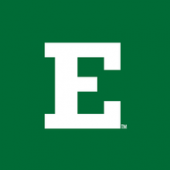
#78: Eastern Michigan University
What began as a small teacher’s college has grown into a major learning and research institution, offering more than 350 programs to 21,000 students. Eastern Michigan University has trained aspiring nurses in particular for nearly fifty years. The undergraduate curriculum offers three BSN pathways: traditional prelicensure, second degree accelerated, and RN-to-BSN degree completion. The MSN program has two adult-gerontology specializations (clinical nurse specialist or primary care nurse practitioner), as well as clinical research and nursing education tracks. Graduate students can also pursue a terminal DNP degree in either adult-gerontology specialization.
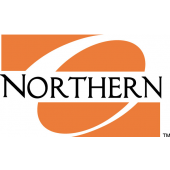
#79: Ohio Northern University
Ohio Northern University offers a four-year prelicensure BSN program. Students begin their clinical experiences during sophomore year and benefit from an 8:1 student-to-faculty clinical ratio. The university graduates 20-30 prelicensure BSN candidates each year. These students have performed exceptionally well on the NCLEX exam, with a 96% first-time pass rate over the past decade. The graduating classes of 2018 and 2020 scored a perfect 100% NCLEX pass rate. ONU students utilize state-of-the-art laboratory facilities and experience a diverse range of healthcare settings. Over the past three years, 98.6% of nursing majors were either gainfully employed or enrolled in graduate school within six months of graduation.
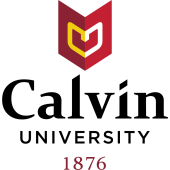
#80: Calvin University
Calvin University is one of the top regional colleges in the Midwest. A Christian school, Calvin University serves 3,700 students across more than 100 majors, minors, and programs. The university offers a fully accredited BSN program that emphasizes practical training and experience. Nursing simulation is integrated throughout the curriculum with a variety of across-the-life-span, scenario-based simulations. Students have opportunities to work in local hospitals, neighborhood clinics, and schools. They can also study abroad in places like Nepal, Mexico, and China. 100% of Calvin University’s BSN graduates are in graduate school or a job within a year of graduation.
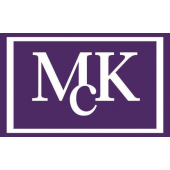
#81: McKendree University
McKendree University’s School of Nursing and Health Professions offers an RN-to-BSN completion program, an online MSN with four tracks, and a DNP in Ethical Leadership. The RN-to-BSN program builds upon the nurse’s previous ADN or nursing diploma education. The MSN offers specialization options in nursing education, nursing management / administration, and population health, as well as a dual MSN/MBA degree pathway. The DNP program is designed specifically for working practitioners. It features a 30-credit-hour online curriculum, plus two on-campus immersion experiences during each August of the two-year program.
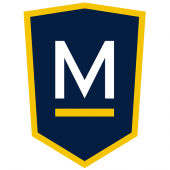
#82: Maranatha Baptist University
Maranatha Baptist University is the only regionally accredited university of the Independent Fundamental Baptist faith to offer a BSN degree. The school has access to grants from the Health Resources and Services Administration for facilities improvements, scholarships, loans, and student loan repayment programs. Maranatha has a small and tight-knit class of nursing students, with fewer than 20 BSN candidates typically graduating each spring. Over the past decade, these graduates have passed the NCLEX exam on their first attempt at a stellar 97% rate. Undergraduates have multiple opportunities to apply their nursing skills on international mission trips.
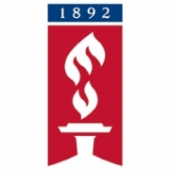
#83: Malone University
Malone University’s School of Nursing & Health Sciences has educated nursing students for over twenty years. The school incorporates evidence-based practice, cultural competence, and simulation training into three nursing programs: a four-year BSN, an RN-to-BSN degree completion pathway, and an MSN degree with specialty tracks for aspiring family nurse practitioners and adult-gerontology acute care nurse practitioners. Faculty members provide students with one-on-one support through both the Center for Clinical Learning and the Center for Study and Testing. Malone’s four-year BSN program graduates approximately twenty-five new nurses annually. These students scored a perfect 100% first-time NCLEX pass rate in both 2018 and 2019.
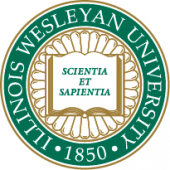
#84: Illinois Wesleyan University
The School of Nursing at Illinois Wesleyan University offers a traditional BSN program that allows students to pursue a minor in Hispanic studies, human services management, or health. The program has several unique features including collaborative research opportunities with nursing faculty, facilities that simulate hospital and home healthcare settings, internships across several healthcare fields, study abroad trips, and early clinical experiences. School of Nursing students also benefit from the program’s 100% job placement rate. Over the past decade, the BSN program has graduated 30-40 students each year who achieved an excellent 91% pass rate on the NCLEX-RN licensure exam.
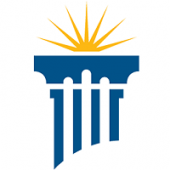
#85: Cedarville University
The School of Nursing at Cedarville University has a number of unique programs. For undergraduates, Cedarville offers both traditional and three-year BSN programs, as well as a cross-cultural nursing minor. The minor prepares students to work with cross-cultural populations on missions either in the U.S. or abroad. Cedarville graduates almost 100 BSN students annually, with a solid 87% NCLEX pass rate over the past decade. Graduate options include an MSN degree with three tracks (family nurse practitioner, global public health nursing, nurse educator) and standalone certificate programs in the final two tracks.

#86: University of Akron
The University of Akron School of Nursing has been educating Northeast Ohio nurses for more than fifty years. Undergraduate students can pursue four distinct pathways to a BSN degree: traditional prelicensure, accelerated second degree, LPN-to-BSN, and RN-to-BSN. The LPN-to-BSN bridge program can be completed in as little as 2.5 years, while the RN-to-BSN bridge program can be completed in just one year of full-time study or two years of part-time study. The University of Akron graduates approximately 200 prelicensure BSN candidates annually, with a solid 89% NCLEX pass rate over the past decade. Graduate programs include an MSN degree with five NP tracks, a post-baccalaureate DNP in nurse anesthesia, and a hybrid post-master’s DNP that takes just two years to complete.
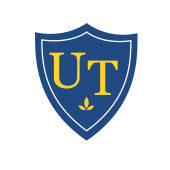
#87: University of Toledo
The UT College of Nursing has a unique partnership with ProMedica. Collectively, the two institutions develop innovative educational programs, offer diverse clinical experiences, provide opportunities for interprofessional research collaboration, and build high-quality professional development programs. The College of Nursing offers a traditional BSN degree through a consortium with Bowling Green State University. UT graduates 150-200 students from this program annually, with a solid 84% NCLEX pass rate over the past decade. The college also offers a graduate-entry clinical nurse leader program with just 30 students per cohort. These individuals have scored an 86% NCLEX pass rate over the past decade. UT’s MSN and DNP programs both offer four distinct nurse practitioner specializations.

#88: University of Wisconsin - Green Bay
The University of Wisconsin - Green Bay offers several nursing pathways through the College of Health, Education, and Social Welfare. Existing registered nurses can pursue a bachelor of science in nursing through the school’s RN-to-BSN completion program. This option is offered not only on campus, but also online through the University of Wisconsin System’s BSN@Home collaborative. Prelicensure students can enroll in the Nurse 1-2-1 program. This innovative partnership with Northeast Wisconsin Technical College enables high school graduates to earn an ADN from NWTC and a BSN from UW-Green Bay, all while living on campus and enjoying a traditional undergraduate experience. In the fall of 2020, the university also launched its own four-year prelicensure BSN program. This new offering will help the state to meet the growing demand for baccalaureate-prepared healthcare providers. Finally, graduate nursing students can pursue an online MSN degree with a leadership and management focus at UW-Green Bay. With flexible course scheduling, enrollees can complete the degree in two, three, or four years.
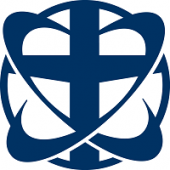
#89: Spring Arbor University
Spring Arbor University has two options for BSN students: a traditional prelicensure program and an RN-to-BSN pathway. The BSN curriculum blends the liberal arts and nursing science to lay a foundation for communication, leadership, and critical thinking. The university provides research and clinical opportunities at both Henry Ford Allegiance Health and Hillsdale Hospital. Students also enjoy a student-to-faculty ratio of 15:1 and a brand new state-of-the-art clinical simulation lab, which allows students to complete up to 50% of the required clinical hours on campus. At the graduate level, SAU offers several MSN specializations including adult-gerontology primary care, education, and family nurse practitioner. The MSN’s flexible online format accommodates a number of pathways, including RN-to-MSN and a unique MSN/MBA dual degree.
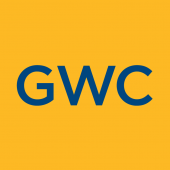
#90: George Williams College of Aurora University
The curriculum at George Williams College is focused on educating students in a handful of majors including nursing, social work, and applied psychology. In 2017, the college launched a new four-year prelicensure BSN program to help address Wisconsin’s acute nursing workforce shortage. Students learn in GWC’s state-of-the-art nursing skills and simulation laboratories, where high-fidelity medical simulation manikins respond in realtime to the care administered. Students also receive extensive clinical experience at area hospitals, clinics, and community agencies. George Williams College’s nursing graduates have a high rate of success on the licensure examination. Indeed, the first two graduating cohorts have scored a perfect 100% NCLEX-RN pass rate.
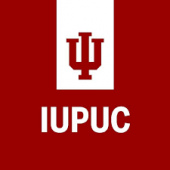
#91: Indiana University-Purdue University Columbus
IUPUC’s Division of Health Sciences offers both baccalaureate and master’s degree nursing programs. The school’s BSN curriculum has three pathways: traditional prelicensure, accelerated second degree, and RN-to-BSN completion. The accelerated option is designed specifically for IUPUC alumni and southcentral Indiana residents who already hold a bachelor’s degree in a non-nursing field. The RN-to-BSN option offers both face-to-face and online tracks. Graduates from the traditional and accelerated tracks have averaged an 87% first-time pass rate on the NCLEX exam since the program’s recent launch. IUPUC’s MSN program is conducted in a hybrid format that requires 43 credit hours and 600 clinical hours over a three-year period. The curriculum has a unique rural focus, and students’ clinical placements are guaranteed thanks to the university’s many regional hospital partnerships.
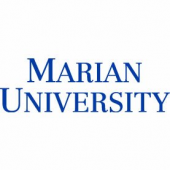
#92: Marian University
Marian University’s School of Nursing and Health Professions has been educating and training some of the area’s best nurses for more than a century. The school’s BSN program integrates Marian’s liberal arts core with an innovative curriculum centered around professional preparation. Nursing coursework covers critical topics like health promotion, psychological integrity, and the legal aspects of practice. Approximately 80-100 BSN students graduate each year, and they have posted an 85% first-time pass rate on the NCLEX licensure exam over the past decade. Marian University also offers an RN-to-MSN bridge program, two MSN specialty areas (nurse educator, family nurse practitioner), and a post-baccalaureate nurse educator certificate.
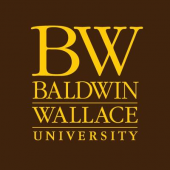
#93: Baldwin Wallace University
The School of Health Sciences at Baldwin Wallace University offers an accelerated BSN program that allows individuals with a bachelor’s degree in a non-nursing field to earn the BSN in just 15 months. The intensive program combines rigorous classwork and lab work with extensive clinical experiences that start in the first semester. All nursing students complete a clinical rotation at Southwest General Health Center in Middleburg Heights, Ohio. Since the program’s launch, BW has graduated 20-40 BSN students annually, with an exceptional 94% first-time pass rate on the NCLEX licensure examination.
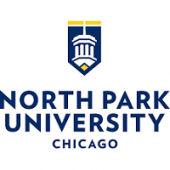
#94: North Park University
The School of Nursing and Health Sciences at North Park University has a breadth of options for nursing students, including two BSN programs (traditional, RN-to-BSN), an MSN degree, a DNP degree, and post-master’s certificates. The traditional BSN program graduates about 80 students annually, who have achieved a solid 85% pass rate on the NCLEX-RN exam over the past decade. The RN-to-BSN pathway blends online and in-person classes, allowing students to continue working full-time. The MSN program has three degree focuses: adult-gerontology nurse practitioner, family nurse practitioner, and leadership / management. The DNP program allows students to complete coursework online, with a visit to North Park’s campus once a semester.
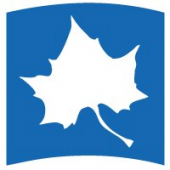
#95: Indiana State University
Indiana State University opened its doors in 1870 as Indiana State Normal School, with just 23 students and a faculty of three. Today, the university has hundreds of faculty members serving more than 13,000 students. Indiana State’s School of Nursing sits within the College of Health and Human Services. The school offers a variety of nursing programs including four BSN pathways (traditional, accelerated, LPN bridge, online completion), two MSN specializations (family nurse practitioner, nurse educator), and the terminal DNP degree. Approximately 150-200 prelicensure BSN students graduate each year, and these students have achieved an 86% first-time pass rate on the NCLEX-RN licensure exam over the past decade.
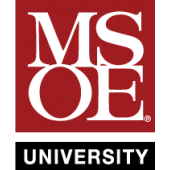
#96: Milwaukee School of Engineering
Milwaukee School of Engineering, also known as MSOE, is a private non-profit university that specializes in engineering, business, and nursing education. The School of Nursing leads two baccalaureate programs: a traditional prelicensure pathway and an accelerated second degree. Both BSN programs offer students direct admission and guaranteed placement in the clinical sequence. The university offers rolling admission for the traditional BSN program. Admission to the accelerated program happens twice annually, and each cohort is limited to just 32 students. The accelerated second degree program requires just 18 months of fulltime study. MSOE graduates 50-80 students annually across these two programs. Since 2017, these students have enjoyed a 95% first-time pass rate on the NCLEX national licensure examination. Nearly 100% of students are either employed or enrolled in further nursing education within six months of graduation.

#97: Cardinal Stritch University
Cardinal Stritch University is one of the largest Franciscan institutions of higher education in North America. The Ruth S. Coleman College of Nursing and Health Sciences offers nursing pathways at both the baccalaureate and master’s degree levels. Undergraduates have three options. Traditional college students can enter the prelicensure BSN program, which offers direct admission to freshmen. This new offering just graduated its first cohort in 2017. Registered nurses can enroll in Stritch’s RN-to-BSN pathway, which conducts coursework online to cater towards working professionals. Finally, ADN students in the Wisconsin Technical College System can take advantage of Stritch’s concurrent enrollment collaborative, which may enable them to complete their ADN with the majority of their BSN credits already earned. At the graduate level, Cardinal Stritch University offers an MSN degree with educator and leader concentrations. The MSN program also accommodates busy RN schedules by meeting face-to-face one night per week, conducting coursework online, or a blend of the two.
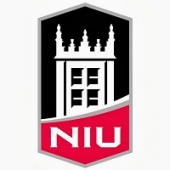
#98: Northern Illinois University
Northern Illinois University’s School of Nursing offers a traditional BSN program that consists of 61-64 nursing credits and 31-33 non-nursing credits. Sample courses for the program include Genetics & Human Genomics, Microbiology, and Nursing Ethics & the Law. Students enjoy a wide range of clinical experiences with over 230 regional healthcare partners, a dedicated advisor, and a Student Success Program that helps students meet program demands. Over the past decade, graduates of the four-year BSN program have achieved an 88% pass rate on the NCLEX-RN licensure exam. NIU’s School of Nursing also offers an online RN-to-BSN, an MSN with two specializations (education, FNP), a post-master’s certificate in nurse education, and a DNP with FNP focus.
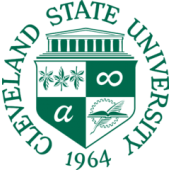
#99: Cleveland State University
The School of Nursing at Cleveland State University offers a traditional BSN for students new to nursing and an accelerated BSN for those with a bachelor’s degree in another field. The university graduates 130-140 students annually across these two pathways, achieving a solid 89% NCLEX pass rate over the past decade. At the undergraduate level, CSU also offers an RN-to-BSN option for licensed RNs and a streamlined BSN pathway in collaboration with Cuyahoga Community College. Post-baccalaureate offerings include an MSN degree and various continuing education programs for working nursing and healthcare professions. CSU students enjoy clinical placements with university partners like MetroHealth and the Cleveland Clinic.
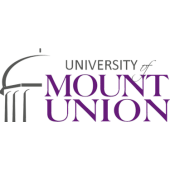
#100: University of Mount Union
The University of Mount Union has two pathways to a BSN degree: the direct entry program and the accelerated second degree program. The direct entry option is a 128-credit-hour, four-year program that allows the student to be directly admitted into the program as a freshman with no waiting lists. Students are immediately introduced to nursing coursework, and they receive hands-on clinical training in the school’s newly built nursing facilities, including a simulation intensive care unit. The accelerated program is customized for adult learners with a bachelor’s degree in another field, and the program can be completed in as little as 15 months. Since the BSN program’s recent launch, graduates have averaged a near-perfect 99% first-time pass rate on the NCLEX-RN licensure examination.
